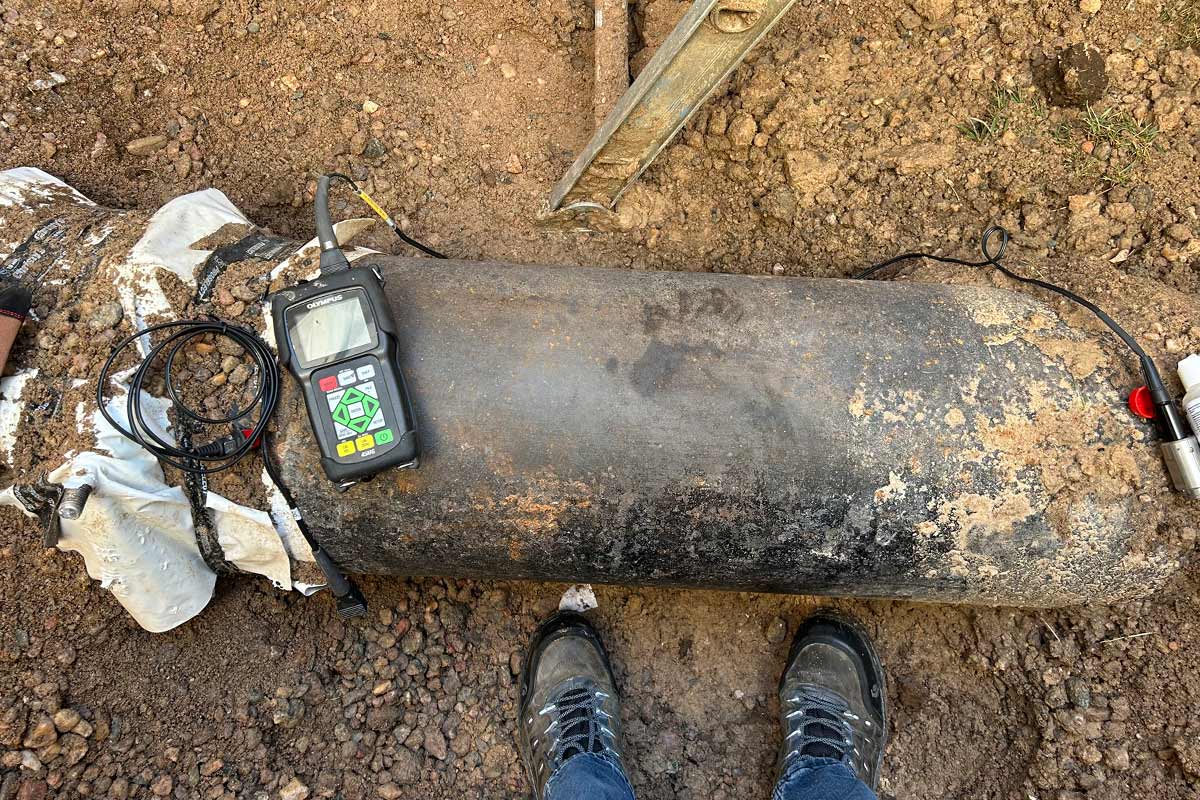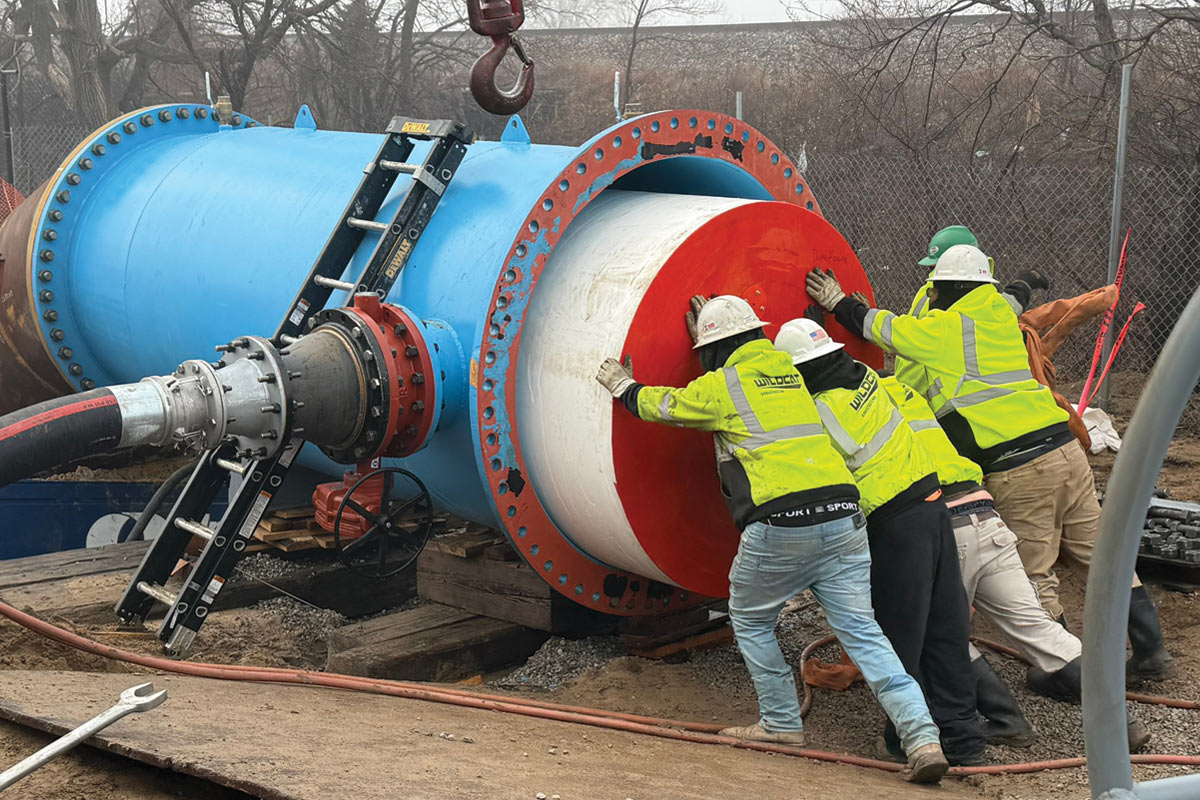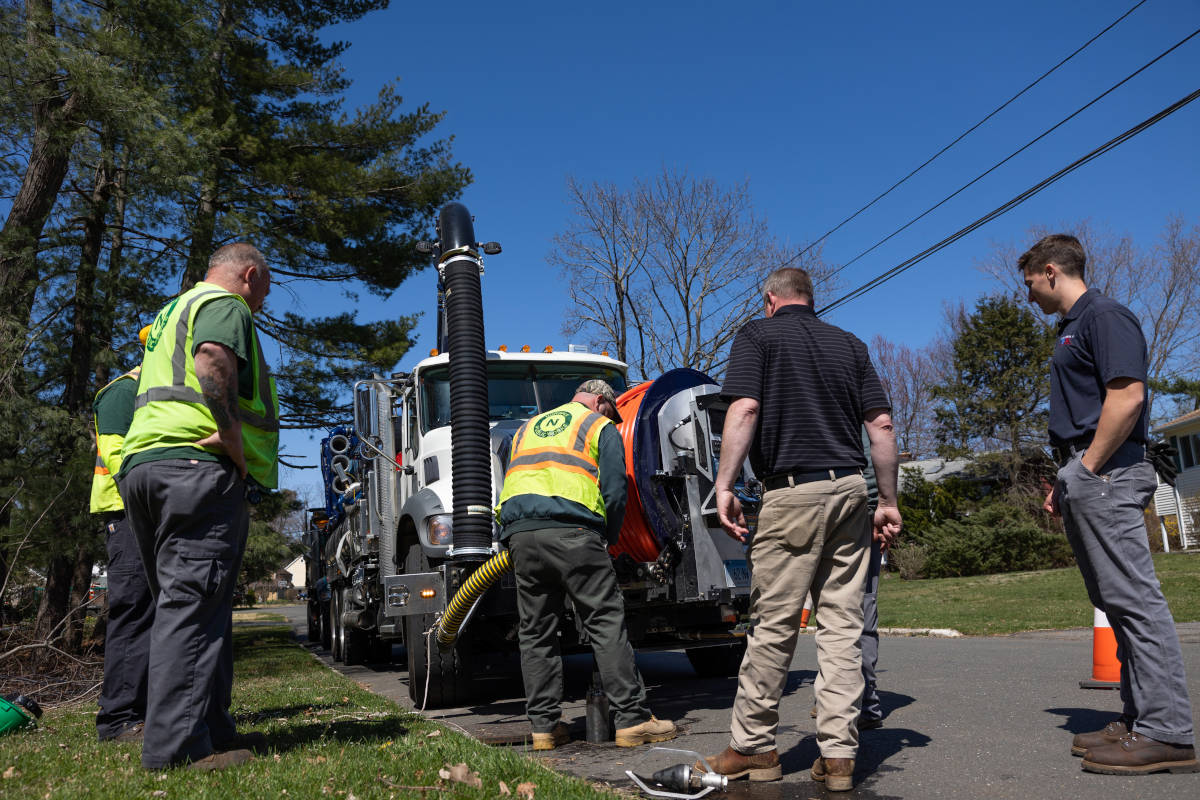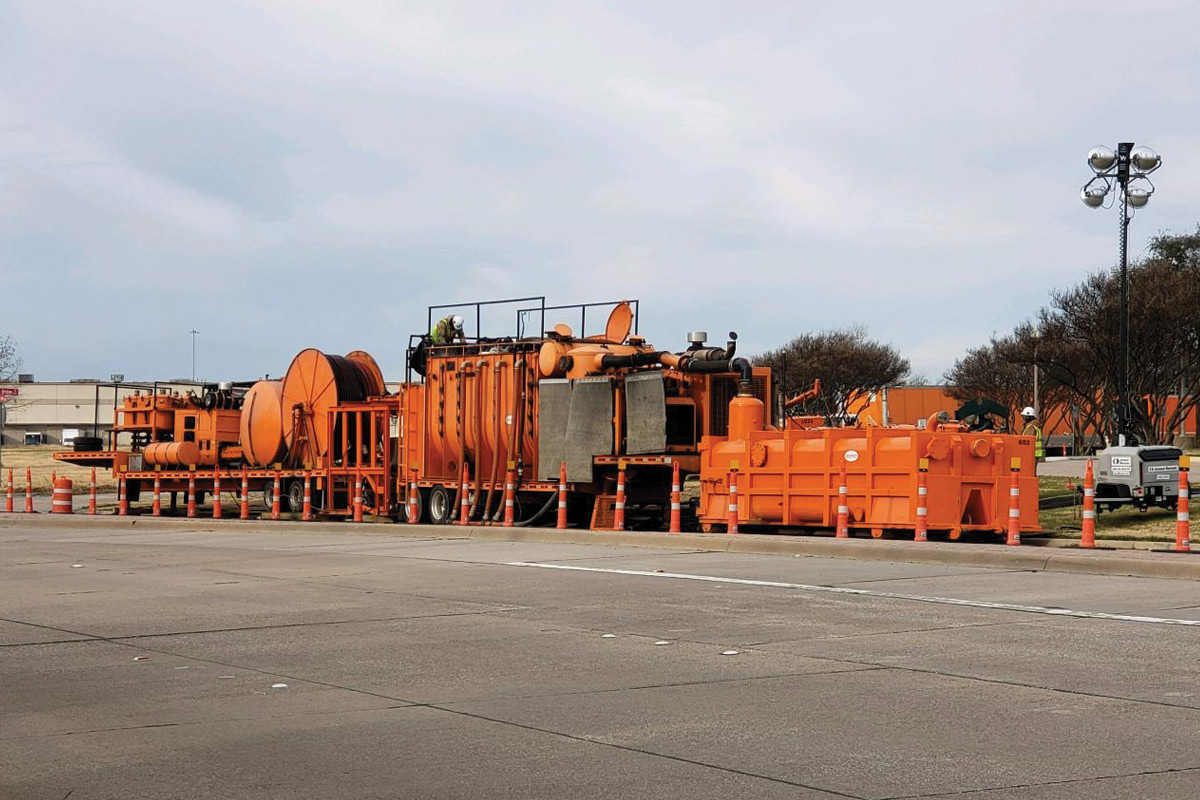Buying a New Jetter?
April 1, 2009
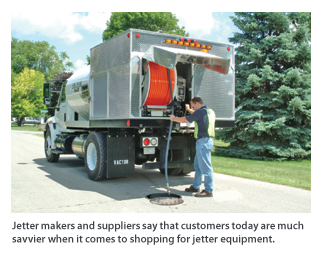 Even in a down economy, equipment purchases are still a part of a municipality’s budget — whether by choice, attrition or necessity. In order to get the most bang for their buck, potential buyers need to educate themselves on what they want to purchase before heading to the dealership and kicking the proverbial tires.
Even in a down economy, equipment purchases are still a part of a municipality’s budget — whether by choice, attrition or necessity. In order to get the most bang for their buck, potential buyers need to educate themselves on what they want to purchase before heading to the dealership and kicking the proverbial tires.Jetters are an integral piece of equipment for municipalities, as they provide crews the ability to thoroughly clean out the pipes so they can begin assessing their condition. Just like buying a car, it’s important to determine what you really need by doing your homework and assessing your municipality’s needs first.
A jetter purchase can run you anywhere from $20,000 for a smaller trailer-mounted unit to clean small diameter pipes up to $200,000 for a truck-mounted unit that handles the larger diameter ones. As important as the price tag is, it shouldn’t be the lone factor in finalizing a deal.
“Equipment is very expensive. The equipment purchaser is looking at everything in making their decision,” says Dan Coley, vice president and general manager with Jack Doheny Supplies, Twinsburg, Ohio. “They are looking at price as being one of the factors they need to evaluate but they are evaluating the equipment in general — the quality, features and total cost of operation.”
When you head to a jetter dealer, there are a few questions to keep in mind before signing on the dotted line to ensure that you come away with the machine you need. And today’s customers are no dummies. Equipment manufacturers and suppliers say the customers visiting their lots are much savvier these days when it comes to their potential purchase, coming armed with the right questions and knowing what they want from the seller.
“Both municipal and contractor customers are far more knowledgeable these days, largely due to the amount of information available to them via the Internet, marketing materials and tradeshow events. There also more trade industry publications available,” says Jared Dippel, product manager for Vactor Mfg., based in Streator, Ill.
“Let’s face it. I don’t care if you are a contractor or a government agency, money is tight,” says Coley. “We have customers today asking more of the right questions about guaranteed trade-in values, lifecycle costs, maintenance expense, etc. They are asking things above and beyond the routine questions.”
But for those who aren’t regular jetter buyers, what are those “right questions” that need to be asked? A few of them need to deal with application, geography, as well as maintenance and financing options.
Coley and Dippel both say that before stepping onto the dealer lot, customers need to consider what application the jetter will be used for — this will dictate the type of jetter they will need. “If they are cleaning out one pipe, they can go with a regular system but if they have lots of different requirements, they may need a multi-flow for modifying the flow of the pump and diameter of hose for optional cleaning,” Dippel says.
Jetters are typically classified as either trailer- or truck-mounted, with the latter needing more flow that pressure. “What are my applications?” Coley says. “What size pipe do you plan on cleaning with it?”
Another important consideration is geography: location, location, location. “[Jack Doheny Supplies is] based in Ohio and Michigan and operates in the Midwest and we deal with cold and freezing temperatures,” Coley says. “If you are working a jetter in climates that freeze, you want to make sure you have cold weather options to allow you to work, such as a cold weather re-circulation system.”
Dippel concurs. “Where is the customer located? In the Northeast or in high altitude, it gets cold and gets colder sooner so those customers need shrouded units with heated compartments so they can operate year-round.”
Questions concerning maintenance and financing options must also be answered. Anytime you are looking to buy a piece of equipment, knowing what the maintenance costs will be for the machine is a must. Depending on use and upkeep, a jetter’s lifespan can be anywhere from seven to 20-plus years.
“If I’m buying a piece of equipment, I want to know [the manufacturer and dealer] are really supporting me and supporting this piece of equipment in a very applicable and guaranteed manner,” Coley says. “It’s important to ask what the maintenance expense is going to be and what would they guarantee you for a trade-in value.”
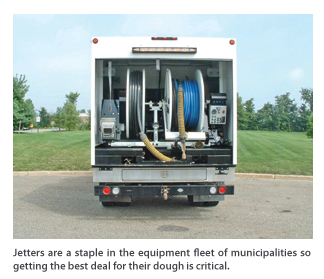 Coley says the guaranteed trade-in value is critical and customers need to get it in writing — in terms of monetary value and upgrade options. “We recommend the customer ask what the dealer will give them for this machine five to seven years down the road,” he says. “What will you guarantee me from the date of purchase… and not just lip service.”
Coley says the guaranteed trade-in value is critical and customers need to get it in writing — in terms of monetary value and upgrade options. “We recommend the customer ask what the dealer will give them for this machine five to seven years down the road,” he says. “What will you guarantee me from the date of purchase… and not just lip service.”Customers also need to think about the financing options available to them — buy, rent or lease. Coley says he is seeing customers take the leasing option more than before. “There are people who have never leased before who are looking at it today because they are forced to [for economic reasons],” he says. “When they look at leasing, they see many attractive benefits, such as low interest rates, and that it’s a very manageable and affordable way to budget a large capital expense.
Common Mistakes
Some common mistakes that customers make in the purchase process include not fully understanding the application the jetter will be used for. “The biggest mistake would be not understanding the axle and chassis limitations of the jetter they are looking to purchase,” Dippel says. “Also, not knowing the wide range of options available to them. Some customers think a jetter is going to pump water, without knowing what they are using the jetter for. You can’t just buy off the shelf — it’s important for customers to know there are unique requirements for each application.”
Purchasing mistakes are made when the customer doesn’t do their homework “When a customer buys the wrong piece of equipment, it’s when they have not done their due diligence,” Coley says.
Other areas Dippel says customers also need to ask about available water capacity configurations, as well as include available water pumps (How are they driven — belt drive, direct or hydrostatic? What is the capacity of the hose and water tank and what material is the tank made of — stainless steel, coded steel or plastic?).
But for some folks, it will still always come down to price, particularly these days. “Price has always been a big factor and even more so in this current economy where everyone is more price conscious,” Dippel says. “It’s important for customers to buy a product that will be supported by the manufacturer and the dealer and that will last them in the long run. Customers are less willing to gamble on an unproven product or a small company that might not survive during tough economic times.”
Sharon M. Bueno is managing editor of Trenchless Technology.
Before Buying, Think About:
- Business history of the manufac turer: How long have they been in operation?
- Dealer capabilities
- Does the dealer/manufacturer provide after purchase support, training and parts support?
- Guaranteed trade-in program
- Warranty length
- Application use
- Maintenance expenses
- Financing factors

